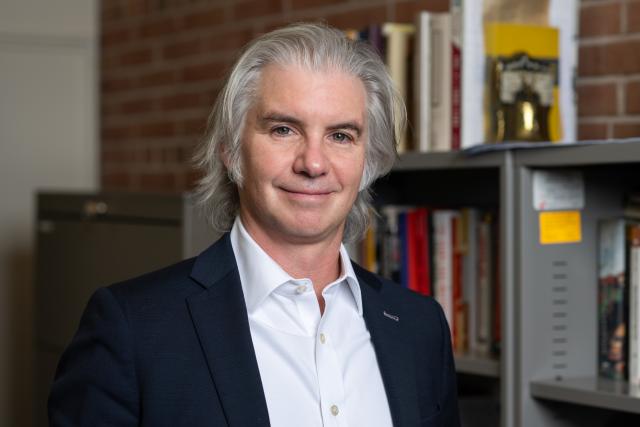Kean Q&A: Jonathan Mercantini, Ph.D., Named to New Jersey Historical Commission

Kean Acting Associate Provost for Special Projects Jonathan Mercantini, Ph.D., a professor of history and expert on the American Revolution, was recently named to the New Jersey Historical Commission. Mercantini, who teaches an advanced history course at Kean, spoke to Kean News about the upcoming 250th anniversary of the American Revolution; the Commission’s role; and the importance of understanding history in the United States today.
Q. Congratulations on your appointment to the New Jersey Historical Commission. What does the Commission do?
The Commission expands, preserves and promotes the state’s history, and brings it to diverse audiences. New Jersey’s history can be used to tell the history of America. The Battle of Trenton is one of the most important events of the American Revolution. New Jersey experienced industrialization, immigration and suburbanization, and was among the most diverse colonies going back to the 17th Century. There are many examples of New Jersey being American history on a micro scale.
Q. What is your background? What sparked your interest in history?
I’ve loved history since elementary school. I just started reading books about it, and thought the stories were really interesting. I grew up in Virginia, an area with both Revolutionary War and Civil War history, and in college I majored in history. I did my graduate work in American History, and wrote my first book on the coming of the American Revolution in South Carolina. The Revolution is my main area of expertise.
Q. Why is it important to study and understand history?
Understanding the past helps us to understand the present. The same kinds of questions and controversies that exist in present-day politics existed back through time in American history. There are people who think we should only teach a very positive, pro-American history in our classrooms, but present inequities and inequalities can only be understood if you know the historical context around them.
Q. The 250th anniversary of American Independence is in 2026. Beyond being a date on the calendar, how important is it?
The 250th anniversary celebration is July 4, 2026. The story we tell of American Independence now is much more complicated, bringing in persons whose stories are too often left out of the historical record. But for a country to have the same foundational form of government for 250 years is an achievement.
Q. Will there be major events held in New Jersey and the U.S.?
I think you will see an upsurge of interest in American history. Many events associated with the American Revolution, like the Battles of Lexington and Concord, took place in 1775, so you’ll see those anniversaries beginning in 2025. Boston already held an event in December, for the 250th anniversary of the Boston Tea Party. In New Jersey, we’re in the planning stage of what’s being called RevolutionNJ.
The U.S. Bicentennial in 1976 was a huge event. It did a lot to bring Americans together in the wake of Vietnam, Watergate, and the economic decline of the early 70s. I would love that to be the case in 2026 given how divided the country is now.
Q. Looking at the political climate in the U.S. today - would you say history is impacting it, or is the political climate impacting history?
Both. You see historians and the public getting involved in subjects related to current politics - like studying the evolution of the presidency, the limits of power. And the Black Lives Matter movement fueled scholarship to tell a more complete American history incorporating African-Americans. At the same time, we see efforts to use history to be divisive.
Q. Final thoughts?
History is interpretation. There is room to have multiple interpretations as long as you have a general understanding of the facts. There are many different ways to understand the Civil War, for example, but you have to understand it was caused by slavery. History can provide some common touchstones. If you can rely on what people learned in the past, and incorporate new stories and new perspectives, you can show that the past hasn’t changed - but our understanding of it needs to change.